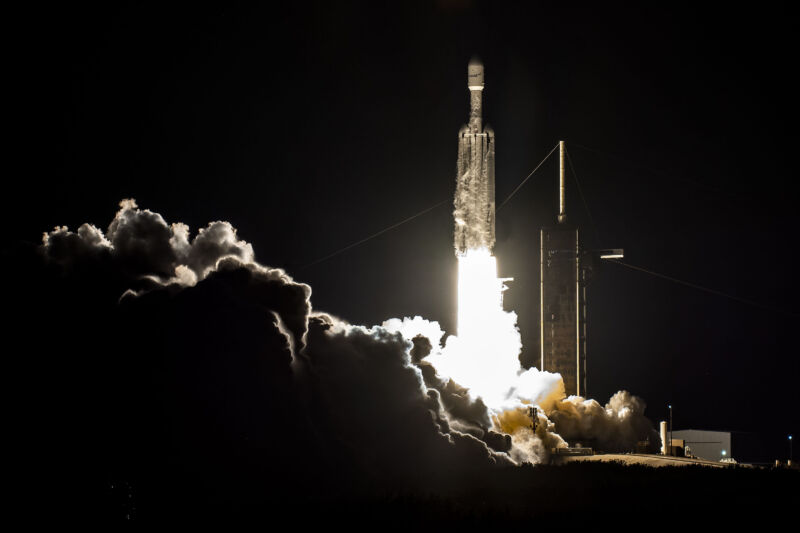Welcome to Edition 5.36 of the Rocket Report! A long time ago in a galaxy far, far away, the space media were given a May 4 launch date for United Launch Alliance's Vulcan rocket. Alas, May the 4th, in 2023, wasn't meant to be. In this week's report, I explain why.
As always, we welcome reader submissions, and if you don't want to miss an issue, please subscribe using the box below (the form will not appear on AMP-enabled versions of the site). Each report will include information on small-, medium-, and heavy-lift rockets as well as a quick look ahead at the next three launches on the calendar.

Electron to serve as a hypersonics test bed. Rocket Lab's small booster will use essentially the same first and second stages for hypersonic test flights, but it will have a modified kick stage that will allow Electron to deploy payloads with a mass of up to 600 kg into trajectories five times greater than the speed of sound, Ars reports. The Army, Navy, and Air Force are all developing hypersonic missiles to provide a fast-moving, maneuverable capability for striking targets quickly from thousands of kilometers away. Among the research problems the military likely wants to test is managing the extreme heat that hypersonic missiles are exposed to by traveling at high speeds in the atmosphere for most of their flight.
Seeking a double-digit cadence ... In an interview, Rocket Lab CEO Peter Beck said the company was able to offer this service because of Electron's reliability and increasing flight rate. "The whole purpose of this is a high-cadence flight capability," he said. "We all know that China and Russia and others have been doing lots of flights and generating lots of data and really advancing the field in hypersonics. The key to advancing the field here in the United States is to do lots of flights." Electron launched nine missions in 2022 and is targeting 15 for this year, Beck said.
Latitude goes on a hiring spree. The French launch company said this week it had initiated a "significant recruitment campaign" to support the development of its Zephyr smallsat rocket. The campaign aims to fill 100 new positions across various fields such as propulsion engineering, systems, avionics, systems integration, finance, sales, communications, HR, or project management.
A whole new latitude ... Previously, Latitude announced a 10M euro Series A round of fundraising in the summer of 2022 and completed its first cycle of engine testing over the winter. It is now working toward more engine tests this year with the aim of making a debut launch attempt next year. The rocket will have a payload capacity of 100 kg to low-Earth orbit and may launch from SaxaVord, in the Shetland Islands, and Kourou, in French Guiana.
China's bustling commercial space industry. According to the China Space Monitor newsletter, the Asian country has approximately 10 commercial rocket startups that could conceivably launch a rocket within the next 12 to 18 months. While there is a reasonable debate to be had about the extent to which these "private" companies are truly operating independently of the Chinese government (see next item), there is no question there is an incredible amount of space activity happening.
Successes in space and funding ... As the newsletter notes, one of China's oldest private space companies, iSpace, just successfully returned to flight with its Hyperbola-1 rocket after four failures in a row. In April, Space Pioneer impressively put its debut rocket into orbit, with the Tianlong-2 vehicle. Also during April, Chinese launch startup CAS Space completed a 600M yen ($87M) C-round of funding, bringing the company’s total funds raised to more than 1.2 billion yen. (submitted by brianrhurley)



3175x175(CURRENT).thumb.jpg.b05acc060982b36f5891ba728e6d953c.jpg)

Recommended Comments
There are no comments to display.
Join the conversation
You can post now and register later. If you have an account, sign in now to post with your account.
Note: Your post will require moderator approval before it will be visible.